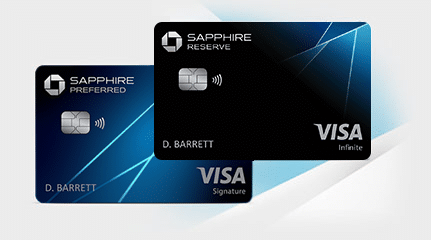Looking for a card for every occasion?
Managing money well is super important in today’s world. Using smart budgeting methods helps you keep track of what you spend. It also helps move you toward a healthier financial life.
By saving smartly every day, you can reduce money worries. You’ll understand better where your money goes. Learning and using these strategies can make your financial future much stronger. This leads to growth and hitting your life’s targets.
Anúncios

Chase Sapphire Preferred® Card

Anúncios
Understanding the Importance of Budgeting for Financial Health
Budgeting is key to managing personal finance. It offers a clear way to see your income and what you spend. Budgeting lets people see where their money goes, helping them use it wisely.

By making a budget, you can stop spending too much. This means you can save for later needs or surprises. Planning your finances this way lowers stress. It also makes you better at deciding on investments and savings.
Budgeting does more than just help you right now. A good budget builds financial discipline, key for reaching big goals. By looking at how you spend, you can find ways to improve. This leads to a more stable and secure future.
Budgeting Techniques for Every Financial Situation
Budgeting is crucial for good money management. There are different methods to fit everyone’s needs. You can pick from the 50/30/20 rule or proportional budgeting. Both have their perks and adaptability.
50/30/20 Rule: A Popular Budgeting Strategy
The 50/30/20 rule makes budgeting simple. Here’s how it divides your income:
- 50% of after-tax income goes to necessities like housing, utilities, and food.
- 30% is for wants, which includes fun stuff like movies and eating out.
- 20% goes to saving money and paying off debt. This helps you grow your wealth and cut down what you owe.
This method keeps your finances in check. It covers important bills but also lets you enjoy life and save for the future.
Proportional Budgeting: Flexibility for Changing Needs
Proportional budgeting adjusts with your life. You change how much you spend in each category as needed. It’s great for when your finances or goals change. This method supports big life shifts, like a new job or unexpected bills. It’s key for maintaining financial well-being over time.
Pay Yourself First: Prioritizing Savings
The “pay yourself first” approach is a powerful savings method in personal finance. By saving a part of your income before paying bills, savings become a top priority. This method encourages regular saving habits and helps achieve big financial goals securely.
Using this method can really boost your finances. For example, putting money into retirement accounts or emergency funds at the start ensures future needs are covered. Over time, this builds a strong financial base, allowing dreams like buying a home or having a good retirement to become possible.
Zero-Based Budgeting: Assigning Every Dollar
Zero-based budgeting ensures every dollar you earn is intentionally used for certain expenses. This leaves you with a zero balance when the budget period ends. It’s great for managing your money well because you have to know what you need versus what you want.
How to Implement a Zero-Based Budget
To start a zero-based budget, you should:
- List all sources of income.
- Identify and categorize expected expenses into fixed, variable, and fun categories.
- Make sure every dollar is assigned to a category, with expenses equaling income.
- Check and tweak the budget as needed if your income or expenses change.
Benefits of Zero-Based Budgeting
Zero-based budgeting makes you think hard about where your money goes. You’re less likely to buy things on a whim because every expense has to be justified. It’s really helpful for people whose income goes up and down as it allows for easy adjustments.
Envelope Budgeting: A Cash-Based Approach
Envelope budgeting is a smart way to handle cash and stay in charge of your money. It involves dividing your cash into different envelopes, one for each spending area like groceries or fun activities. This way, you can see exactly how much you can spend and avoid going over your budget.
This method is simple but powerful. If an envelope gets empty, you can’t spend more in that area until you refill it next time. This helps you really understand your spending and build better money habits.
Using envelope budgeting, you can get better at managing your cash and hitting your money targets. It’s a proven way to spend wisely and keep your finances healthy.
Values-Based Budgeting: Aligning Spending with Priorities
Values-based budgeting is a smart way to handle money. It means spending in line with what’s most important to you. First, figure out your top priorities. This could be things like traveling, learning, or buying a home. Then, you adjust how you spend to match these goals.
Identifying Personal Values
Finding what you truly value is key to this budgeting method. Here’s how to get started:
- Think about what has made you happy in the past.
- Look at where you spend money to see what you enjoy.
- Decide what’s most important for your money to go towards.
After figuring out your main values, you can plan your budget to support them.
How Values Influence Financial Decisions
Your values play a big role in how you use your money. When your spending reflects what’s important to you, it feels more satisfying. Think about these ideas:
- Choosing things that improve your life, like health or education.
- Making purchases that bring you joy and match your interests.
- Setting aside money for big dreams, making sure your finances help you reach them.
Using Technology for Budgeting: Apps and Tools
Technology has changed the way we budget our money. Now, lots of budgeting apps and tools make managing money easier. They help track what we spend, organize expenses, and plan how to save.
Apps like Mint, YNAB (You Need A Budget), and Personal Capital are great for keeping an eye on money matters anywhere. They give a clear picture of your financial health. These apps also look at how you spend money to suggest where you can cut back.
Using technology makes budgeting simpler and helps people meet their money goals. Adopting these new tools can boost how much you save and make you more financially smart.
Common Budgeting Mistakes to Avoid
Understanding common budgeting mistakes can really help your finances. People often slip up by not sticking to their savings plans. Knowing these errors is key to better budgeting.
Underestimating Expenses
Not guessing your costs right is a big problem. Costs like utilities and groceries can change. This mistake can mess up your budget. To avoid this, add up all your possible expenses carefully.
Neglecting Savings Goals
Forgetting about savings is another issue. People sometimes only think about what they need now and forget to save for emergencies or dreams. Setting up clear savings goals helps keep your finances on track.
Conclusion
Smart budgeting is key for better financial health and meeting your money goals. Using methods like the 50/30/20 rule and the envelope system helps fit your personal needs. Choosing the right budgeting ways can help you manage your money better and ensure a stable financial future.
It’s important to keep checking your budget methods. This lets you change things to stay on track with your money goals. Being able to adjust keeps you moving towards financial stability.
Good money management can give you peace of mind and a better life. Having a detailed budget improves your finances. It also helps you make smart choices for a prosperous future.
FAQ
What is the main purpose of budgeting?
How does the 50/30/20 rule work in budgeting?
What is zero-based budgeting?
How can I implement a “Pay Yourself First” strategy?
What are some common budgeting mistakes to avoid?
What modern tools and apps can assist with budgeting?
How can values-based budgeting enhance my financial decisions?
What is envelope budgeting and how does it work?
Why is flexibility important in budgeting?
Conteúdo criado com auxílio de Inteligência Artificial


